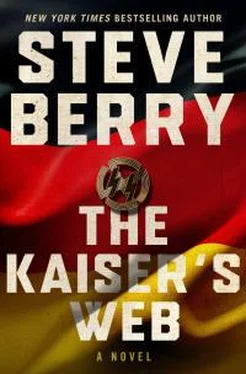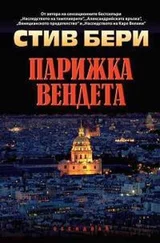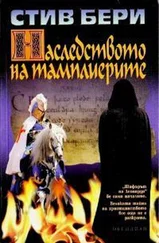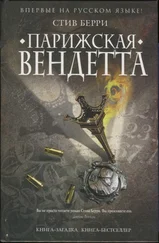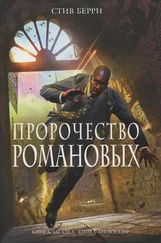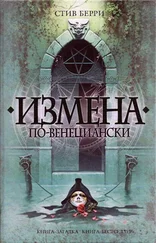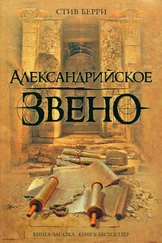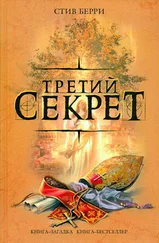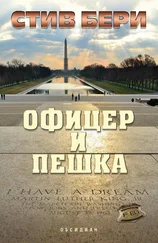He didn’t really know why he voiced that concern. Maybe it was that unsettled feeling still swirling inside him.
“Good sons are precious things,” Schüb said. “My Jan is a joy. But Theodor. That one is a devil. He seems to be my penance for a life of doing as I pleased.”
He asked, “What would have happened if Eva Braun had lived past the birth?”
“We would have continued, as before. Both of us trapped, yet neither with the courage to walk away. It is strange how youth invigorates us with energy, but denies us the wisdom to make the right choices. I failed to make my share, Herr Malone. I am sure in your life you have made choices. Some good, others bad.”
That was true, but he couldn’t decide if the good ones outweighed the bad. At least he was alive, living in Europe, doing something he’d always wanted to do. And in love, too. That mattered. Then he realized he was currently in a secluded Alpine valley, with a dangerous, unpredictable man who could derail the entire German electoral process. Perhaps even rattle the European Union itself. Which brought back that unsettled feeling.
“We need to go,” he said again.
Schüb reached for the last lamp and was about to extinguish the bulb when, through the open front door, two headlights in the distance came alive in the darkness and a vehicle sped toward the farmhouse.
“Kill the light,” he said as he slammed the front door shut.
Outside, he heard the engine growing louder.
He stared out the window.
The headlights weren’t stopping.
They were coming straight at the house.
He lunged toward Schüb and swept the old man off his feet, the two of them propelled into the room beyond. They slammed into the plank floor just as the front wall imploded from the impact of the vehicle. The farmhouse walls were apparently well constructed and the inside partition between the rooms held the upper floors from collapsing.
“You all right?” he whispered.
Schüb stirred beneath him. “My old bones are pretty tough.”
He motioned toward the rear and the kitchen. “Head forward. Keep down. Stay quiet.”
Schüb was indeed remarkably agile for someone in his nineties. The old man managed to come to his feet, crouch down, and make it to the kitchen. The front part of the house was demolished. Sounds could be heard outside. Cotton remained still and listened through the rain.
Voices.
Two different men.
He found his gun and pointed to Schüb, indicating that he should retreat farther into the kitchen. Neither of the attackers said another word. Which made it hard to pinpoint their location, and the wind further masked their intrusion. He slipped out an opening in the wall into the rain and saw one of the assailants toting an automatic rifle. Perhaps they thought the frontal assault with the car had taken care of the problem. A good conclusion, actually.
He gave a few short bursts of a whistle.
The Old Spice jingle.
The shadow whirled but never got around.
He shot him in the legs.
Which dropped the guy to the wet ground. Shooting him in the chest might not be effective since these people came prepared and Kevlar vests could have been part of that preparation. The man writhed in pain but managed to bring the rifle around and ready himself for a burst of rounds.
Not tonight.
Cotton shot him in the head.
Which ended the problem.
But he’d definitely alerted the other intruder.
He slipped back close to the wrecked house and called out in German, “I have him.” Hoping the ruse would work.
He heard movement from around the corner and readied himself for a shot. But something nestled close to the back of his skull. Hard. Unsettling.
The barrel of a gun.
Three men?
So much for staying ahead of them.
“Drop the weapon,” a male voice said in English.
Another rifle-toting assailant appeared ahead of him from the other side of the house.
“I said drop the weapon.”
He held on to the gun. The barrel stayed to his head from behind and the other guy, with an automatic rifle, kept approaching.
This was going to be tricky.
Rain continued to fall and the wind howled down through the mountains.
He stayed calm and still.
Patient until—
He ducked to avoid the gun to his scalp and rammed his left elbow into the man’s ribs. At the same time his right hand swung around and fired at the man in front of him, who tumbled backward from a round to the chest. The assailant behind him recovered from the blow, but his awkward stance and loss of breath rendered him momentarily vulnerable.
A blast exploded in the night.
And the man collapsed to the soaked ground.
A dark form materialized through the rain.
Schüb.
With a shotgun.
Which came up, level, and fired again.
He whirled.
The man behind him had tried to stand, but Schüb ended that attempt.
The old man lowered the rifle.
“I have long kept guns here. Thankfully, whoever pilfered the diaries left them. It appears Theodor has deduced that I am not dead, and that I came here. He’s the only one who knows of this place, besides me.”
He checked all three corpses. White males. Middle-aged. No identification. Dead. They stepped back into the house, out of the rain.
Schüb set the shotgun aside.
Cotton found his cell phone.
“We need to get out of here. And fast.”
CHAPTER SEVENTY-ONE
HILDESHEIM, GERMANY
10:40 P.M.
Marie sat calmly in the chair. The public furor over what happened in the cathedral a few hours ago had yet to subside. Never had a suicide bomber been filmed in the act, but her assassination attempt had been captured on video in its entirety. Every German station, along with all of the cable news stations from around the world, had repeatedly broadcast the dramatic footage for the past few hours. The pundits had all weighed in with a multitude of opinions as to who, what, and why. A police sniper had been credited with the kill, but she knew who to thank.
She was alone in her hotel room.
Cassiopeia Vitt had demanded that she be ensconced there, with security outside, until the full extent of the threat could be assessed. Deciding she’d pushed Vitt enough for the day, she’d offered no resistance. Her press secretary was clamoring that she speak with reporters. There were questions, and her answers would reassure the nation that she was okay. All of her aides were quite excited. Nothing better to endear a candidate with the people than for her life to be openly threatened. For them, this was an opportunity that must be exploited.
And she agreed.
But for a different reason.
She’d seen her assailant as he rushed toward her.
Fair skinned, light haired—Aryan.
She was certain that a background investigation would reveal that he was no priest. Instead he probably possessed new-right connections and radical politics. It would be easy to link him with radical conservatives, then them with Pohl, then Pohl with Bormann, and finally Bormann to Hitler. Perhaps the failed assassination would be enough to alert the comatose German majority to the lingering evil that surrounded them. After all, the would-be assassin was no foreigner. They were not rid of fanaticism. In fact, the malady still existed, currently manifested in Theodor Pohl. Yet there was still the problem of the money her father and husband had accepted. What had Kurt said earlier in the Mirror Room? “Your father was a Nazi. You may choose to deny the fact, ignore the obvious, but your father loved Adolf Hitler.”
He was right.
Her father and husband had knowingly profited from the Third Reich. She could not deny that fact, and no one would ever believe that she was unaware of anything until today.
Читать дальше
